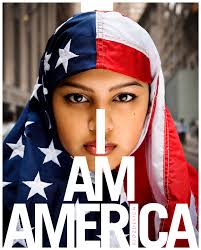Strangers – people who are not ‘us’
A lot has been said about who “us” or “they” are. From Stuart Hall’s essays on “the West and the rest” referencing how the West is blinkered to other views from other parts of the world to David Morley says that American media imperialism and cultural protectionism are starting to cause problems (Curran and Morley, 2006)
A recent Channel 4 episode of Unreported World, featured a reporter talking to Brian Fisher. An influential Christian right-wing talk radio host in the USA.
The programme examined his and other’s right-wing talk show hosts stock-in-trade. Namely espousing right-wing views and disagreeing with callers and or listeners who held different views.
It appears that, at the time of broadcast, the USA was particularly fixated on an anti-Islam view following recent attacks on US citizens.
The overwhelming view was that Islam is the enemy. The USA is good and god-fearing. That the USA is and was always right in every view it had, has or will have.
And, Brian Fisher, the talk show host felt that when talking about American Muslims, he and his listeners “would like them to convert to Christianity” (Unreported World, 2012)

This is where cultural imperialism is at its most obvious in the 21st century.
Dyer’s view that “white people set the standards of humanity” (Dyer, 1997)
Is not quite true. Many races make up the cultural mix of the USA.
However, those races are expected to integrate fully with the USA and be part of a homogenous view, or a discourse.
The USA’s discourse is neatly wrapped up as “The American Dream.” And, they are not alone in having that kind of view.
Most countries are nationalist in nature. Cultural pride being evidenced at such things as international sporting events, where pride and respect are shown to national anthems as they are played.
Any kind of imperialism in the past brought with it a kind of media imperialism.
The British Empire, came with its own values of trade, suppression and greatness. The discourse in this case was how great the Empire was, how lucky the citizens were to be part of it and that being part of the Empire automatically made you one of the best people on Earth.
Dissent, or people not agreeing with the discourse was not tolerated. Hegemony was not established. As force was often used to gain control and quash rebellion in territories such as India and many parts of Africa throughout the Empire’s long history.
Back to the USA, all races are expected to become “American” and swear “allegiance to the Flag”. Dissenters from any side of the political debate are marginalised and ridiculed on talk radio.
However, maybe the opposite is now happening.
A recent article discusses how Muslims in America are actually integrating far better into “western” or “American” society than their European counterparts. “American Muslims are better off than their European co-religionists” (The Economist, 2014)
This could mean that America is changing; that even the marginalised societies are now becoming ‘American’ and equally holding right-wing views and finding it more important to agree with the American Dream than to solely be identified by religion.
References
Curran, J. and Morley, D. (2006). Media and Cultural Theory’. 2nd ed. Abingdon: Routledge, p.34.
Dyer, R. (1997). White. 1st ed. London: Routledge, p.9.
The Economist. (2014). Islamic, yet integrated. [online] Available at: https://www.economist.com/news/united-states/21615611-why-muslims-fare-better-america-europe-islamic-yet-integrated [Accessed 4 Mar. 2018].
Unreported World, (2012). [TV programme] Channel 4: Channel 4.
CHRIS DABBS – CD632
